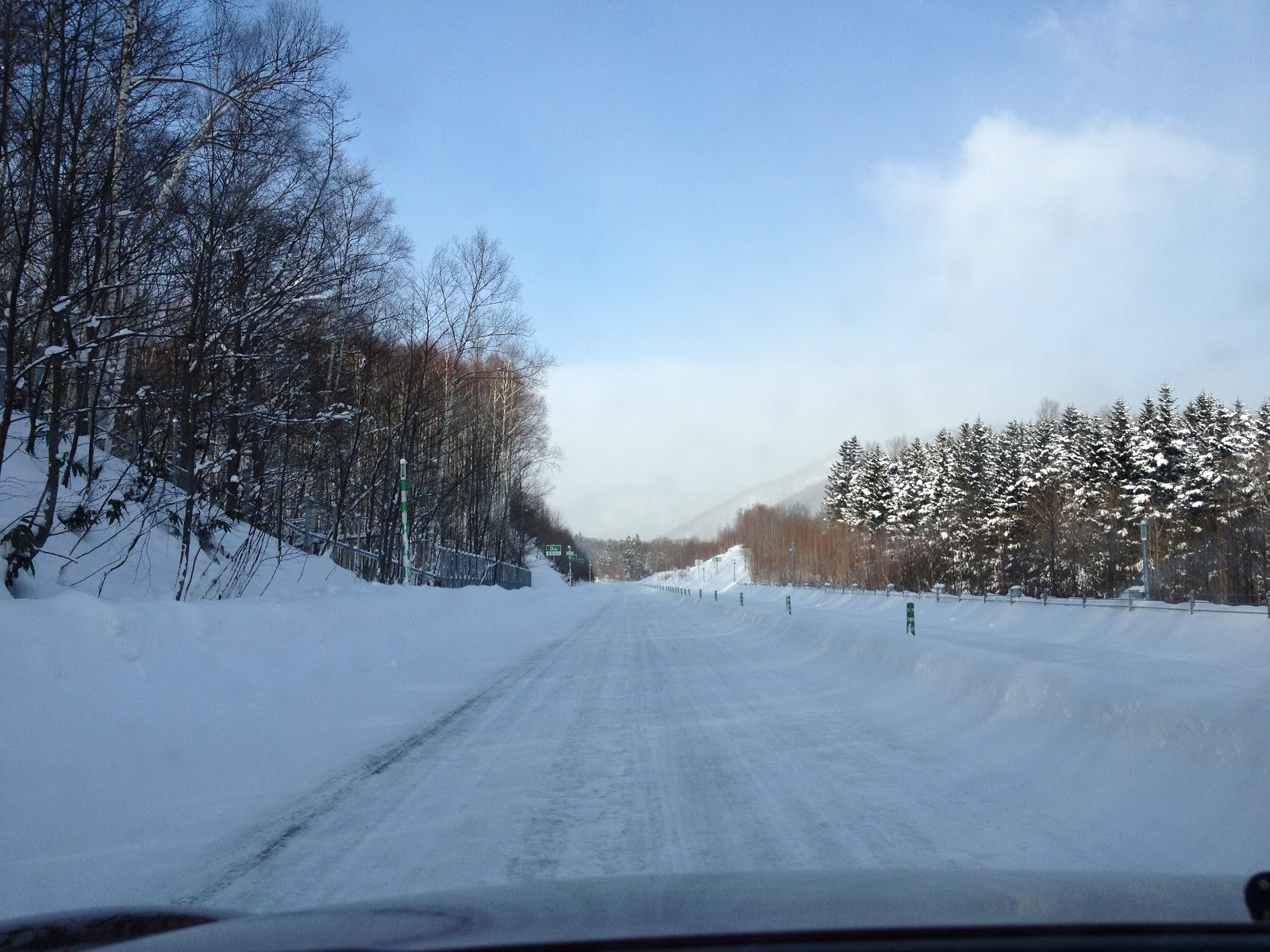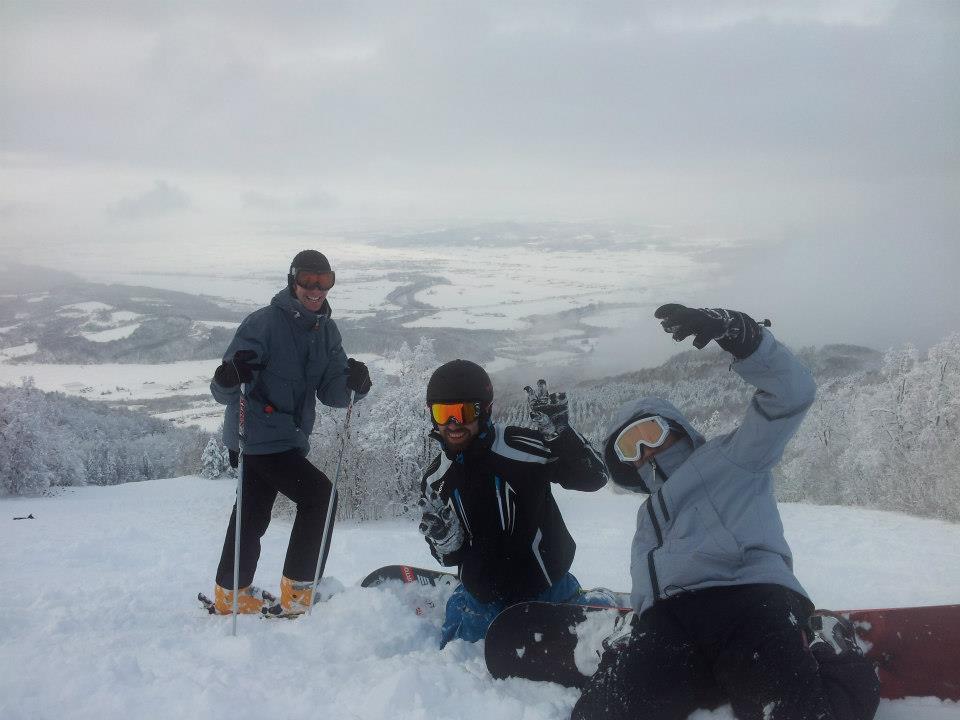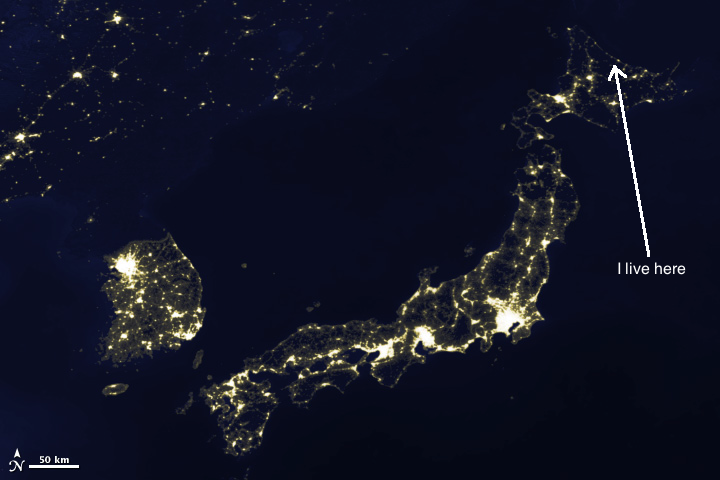Week 17

Japan, for all of it's technological romance & densely sardined human beings in highrises and little alleywayed two-storey houses with tall cement walls (almost compoundish), shouldn't for any reason still have a place like Hokkaido. Hokkaido is the backwoods, the proverbial boonies, a land of farmers and fishermen, of larger-than-life landscape, of wild seasons rocking back and forth with the globe through almost every color in the spectrum, from the earnest blues of the Sea of Okhotsk in the early winter, to the deep greens of forests that no joke do not end (which is strange, Hokkaido being an island), to the oranges and reds of the blooming autumn, pinks and blacks of spring and rich browns, thick and chocolatey and altogether way too hearty, that permeate everything, temporally and geographically speaking. It's a tremendously beautiful land, is the point here.
But it's populated throughout with a sort of dismal crowd, a population that over the course of the past twenty or so years have been gradually filtering out of Hokkaido for the more blossoming parts of Japan, parts of Japan that aren't seen as valuable only for the skiing in the winter and the motorcycle tours in summer. So the curious thing about this place is the general air of abandonment, which sounds sort of vaguely sad in the ways that orphanages are vaguely sad, rendered trite and hackneyed and tired by repeated use in trite, hackneyed, tired stories about orphanages — but the truth about abandonment is something significantly deeper, something pathologically unsound and saturated with a deep despair, a something that reaches down into the earth of your soul and touches the roots like guitar strings, vibrating parts of you that really oughtn't vibrate.
And so the landscape of Hokkaido, fervid and livid and turgid and cuspid (or, like, you know, whatever) is peppered all over with this forgottenness, this colossal soul-strings-touching abandonment, teeming on the edges of the highways with ivy and weather and little artifacts of human life, things that meant something to someone, things that were worth enough that someone spent money or time buying or making these things, now just tossed aside, the work of a certain number of minutes tossed down a well. These abandoned places sit silent in the day, baking in the sun of the summer, and in the winter crouch in the brisk silence — a complete lack of frequency of any kind — day and night, spring and autumn, year in and year out, alone, which existence, totally regardless of the 'Spirit of Things,' (emphasis on the quotes) I think resonates on a level (with me, anyway) that I don't want to really acknowledge significantly, for totally justified fear of sincere inescapable & crushing clinical depression.
Driving by these places at night definitely strikes a chord with a person, especially a person stepping back and like thinking about what they're looking at out the window of a speeding kei car. We had gone skiing/snowboarding during the day, which more on that later but suffice it to say for the moment that it was kind of incredible; the word that most people, foreign and Japanese, use here is addict.

But anyway. On the way back home we found ourselves on Good Ol' Routes 273 & 333, in the thick of the snow, peering into the darkness of the forest, when I saw that old shack thing that Nicole & I explored the other week. But less than the shack itself, I think was the crushing loneliness and, I don't know, abyssal-ness of the building in the forest, and I think it serves to address the topic of darkness, here. To most people with computers to access these words, darkness is a weird construct that we know but aren't conscious of knowing. Darkness is an alleyway with no streetlights in it. Darkness is when you turn off the lights in your room and hang out in the nonlight half-glow of the high-pressure sodium from outside. Darkness is when you hid out in the closet as a kid, the dimness womblike and solid, almost, a seam of light cutting in under the door or at the threshold. Darkness is trying to make it to the bathroom at 3:30 in the morning, when everything for some reason seems desaturated and grainy like high-ISO film, the ambient photons in the room unable to muster the proper wavelengths of color at that godforsaken hour. Darkness is something you conceptualize visually, something always relatively lightless but always more of an inconvenience than anything forcefully moving.
Darkness in Hokkaido is a totally different thing. Darkness in Hokkaido is a complete void. An emptiness. The kind of emptiness where sound can't even exist, like space, like the interstellar medium, but without stars. Darkness is a place where your subconscious can't even come up with some phony synthetic sensory information to fill in the blanks. Darkness in Hokkaido is the kind of thing that fishermen tell stories about late at night when they finally make it back to port. Darkness has a name that people are genuinely afraid to say. Darkness is why you never really see anyone out after maybe 6:30 or 7 in the evening. Darkness here cannot be thought of, cannot be conceptualized, with anything but a capital D, in Hokkaido.

So driving through the forest, our limbs aching from skiing, our bodies sore and overexposed and throbbing distantly, our consciousnesses kind of lost in the kei car's overbearing thrum, peering out the windows maybe thirty feet into the Darkness, seeing a bare and Dark shack, forgotten in the snow and the forest, I definitely got the feeling we were travelling through some twilight zone, this road a little ribbon of reality through complete, comprehensive emptiness, as if the snow and the trees faded out and dematerialized some thirty feet deep into some kind of non-reality. I think that had we stopped and tried to check out that old shack again, something deep and primal and human and feeling inside of us would have kept us out of that building, would have prevented us from even really getting close to it, so proximal to this infiniteness, to something sublime and inhuman and incomprehensible in natural, day-to-day human terms.
So instead we got back on the more-travelled roads and continued on our way home.
As you drive back from Asahikawa to Yubetsu, there is a point where you come around a wide sweeping corner and before you is a very sharp, steep hill, coming up like a great fist from the earth. At night it is a monolith of blackness, of Darkness, against the regular minuscule-d darkness of the sky. The silhouette actually looks a little bit like the profile of a face, but only for a second; and as we drove by it and fell into the non-shadow that it cast, coming as it were into its orbit, I could almost imagine this great impossibly large body attached to it climbing out of the earth one day, deciding that it, too, has had enough of Hokkaido, joining the great Exodus in the dead of night. No one would notice, in the safe, light havens of their kerosene-heated homes, of their buzzing fluorescent lighting — no one would notice the great Hokkaido golem crawling up out of the earth to move off to northward, to walk right into the sea.But still the mountain sits there, because Nature is Hokkaido's only real asset, only real presence, the people here all apparently just transient, just passers-through on this big island, this big elemental playground, this land so accessibly bigger than us.